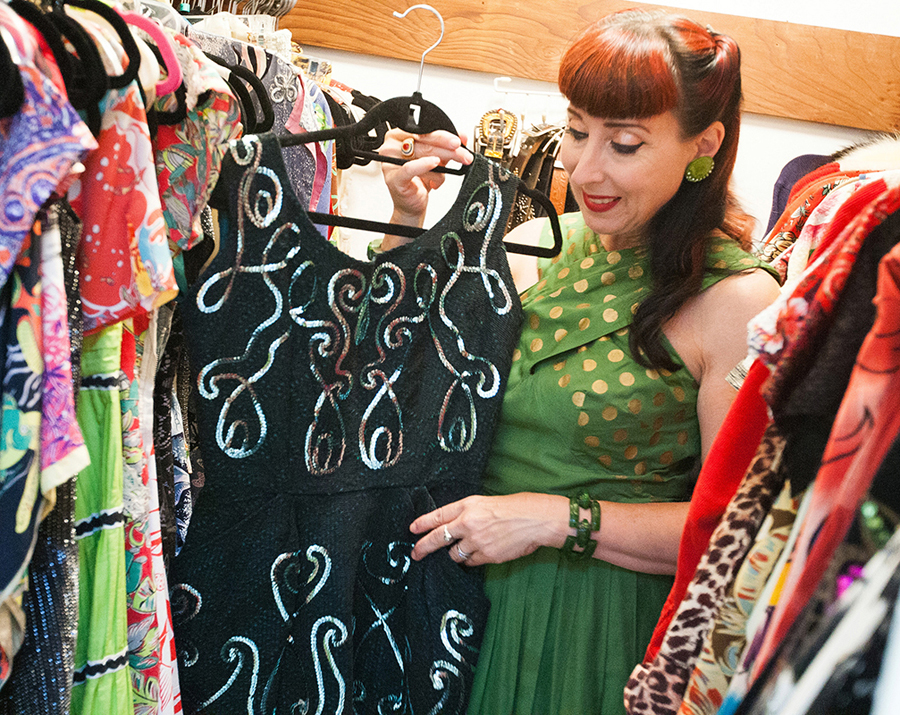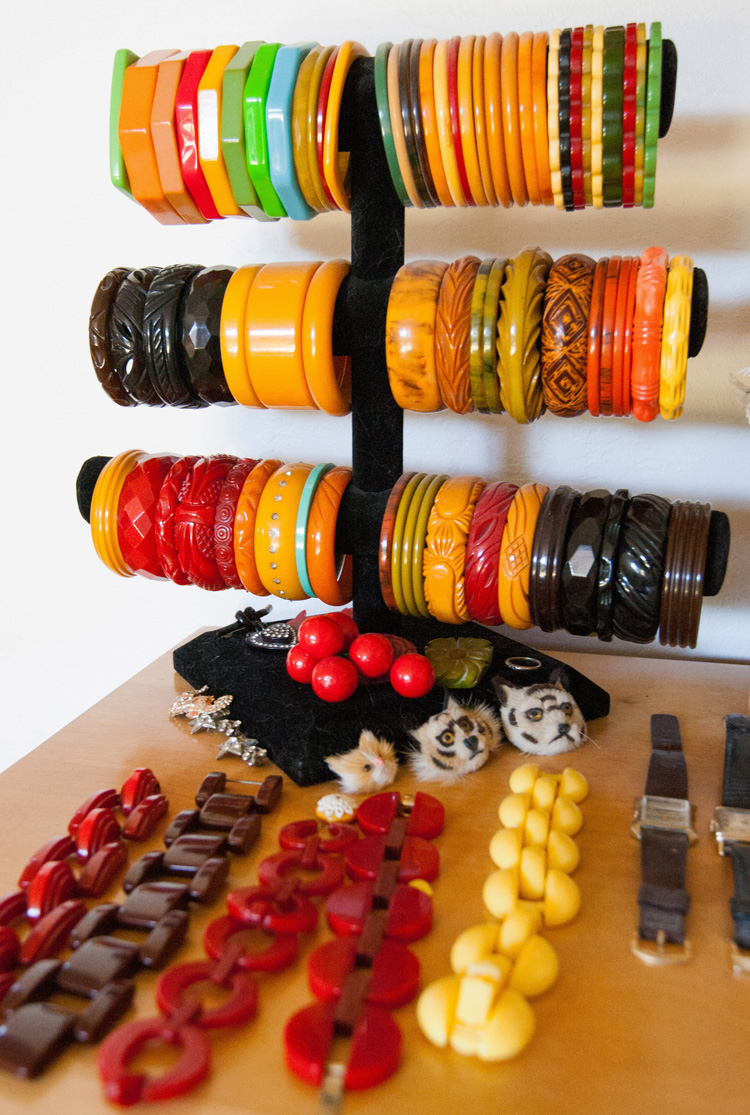Dress to Express - Page 5
 |
 |
|
|
"I have my own look," says Kathryn Danish, who mixes vintage and new fashion. "Crisp white shorts and trousers or black dresses and low pumps. It's quick and easy. I like it asymmetric, not artsy, with very modern, clean lines. Simple. I like red lipstick. I like makeup."
"I think you can incorporate [vintage] without being someone who just wears vintage," she says. And, when you need an outfit for an occasion, she says, "One little thing will make it."
"A big Bakelite button can turn something new into something vintage," her husband Andrew tosses in.
"You just have to have an eye," says Kathryn, who works as a representative for Knoll, the maker of modern furniture.
Karl and Renee Underwood mostly stick to clothes from the late '40s into the 1960s—"pre-Beatles," Karl says.
Some people, Karl and Renee say, just enjoy dressing up in vintage fashion in general, wearing '30s fashion to a Great Gatsby picnic, and rockabilly wear the following weekend to a club.
"There are some people, they are only really into one era, say they only dress Mod," Vanessa Kunkel says. "They totally would never wear like '40s stuff. And there are some women who are just into '70s designer [wear], which is totally fabulous on its own. For me, I look at it, [and] if I think it's really cool, I love it."
And then, Kathryn Danish notes, "There are some people who will deck out their house in 1955, and like just do it completely up. Some people take that lifestyle very seriously, and everything is all encompassing. I don't think we're part of that whole genre."
One couple that takes their lifestyle seriously is David Nicholson and Yvette Claire. Dressing Mod started for David not as a fashion choice but as a way of life. A high school kid from the Central Valley town of Tracy, he began hanging out in the big city—Sacramento—at the ice cream shop by Tower Records.
Several dozen Mods would hang out there in the early, mid-1980s, leaning on scooters. "The Mods would mix with the trads and the skinheads," he says, "but not racist skinheads, and some rude boys." Soon he was in the scooter club, the Burgundy Top.




